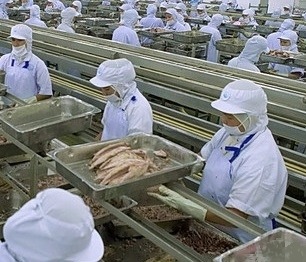A Finnish non-profit research group is accusing two Thai tuna canneries of “serious violations of basic human and labor rights.”
Finnwatch, a group that focuses on global corporate responsibility issues, released a study last month that examines the work conditions of two suppliers in Thailand who produce private label canned tuna for Finland’s biggest retail chains.
According to its website, “Finnwatch monitors Finnish companies in developing countries and economies in transition. We are interested in the consequences of Finnish companies’ operations on human and labour rights, in particular the environment and developmental and social consequences.”
Finnwatch says it spoke with tuna workers at both factories – though it did not indicate how many were interviewed – and found the majority did not receive health benefits or did not understand the meaning of health insurance despite paying for them (the costs were subtracted from their wages).
Many of the interviewees, at both companies, said the canners employed underage migrant workers. Foreign workers – largely from Myanmar and Cambodia – also experienced harassment and discrimination, according to the group.
Finnwatch approached both companies to respond to their findings. With regards to the underage children working in its factory, the group said one employer “finds it difficult to intervene as the child workers have official ID cards granted by Myanmar officials with false dates of birth” and that it “promises to look into possible improvements.”
In response to concerns raised about workers not receiving health insurance cards despite paying for them, the group said both canners blamed Thai officials for the delay.
Finnwatch found that all interviewees were paid the legal minimum wage (THB 300 per day), received overtime pay (THB 56 per hour) and compensation for night work (THB 30-40 per shift). Working overtime was voluntary at one factory, while staff at another plant said it was compulsory, according to the group. Workers also received bonuses, either annually or based on performance or both depending on the company, reports Finnwatch.
The group also said there are no unions for the workers in the investigated factories and almost none of the interviewees understood the concept. According to their research, one worker, who was aware of trade unions, said his employer did not allow them and anyone who organized one would be fired. In response, the company reportedly said no one had ever proposed the idea and it is not opposed to unions.

